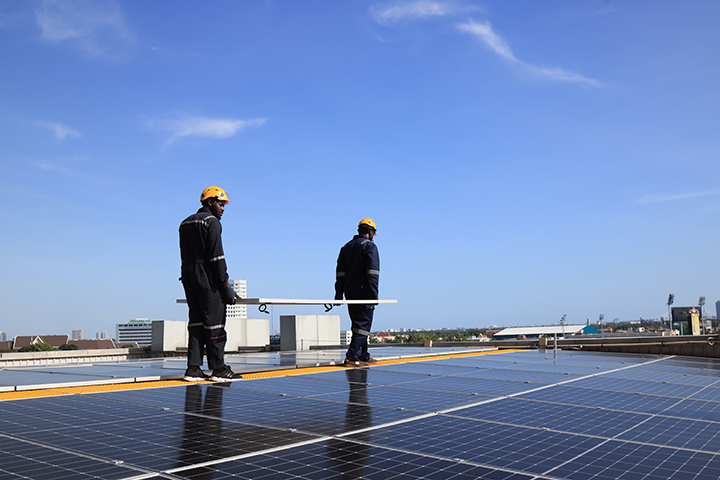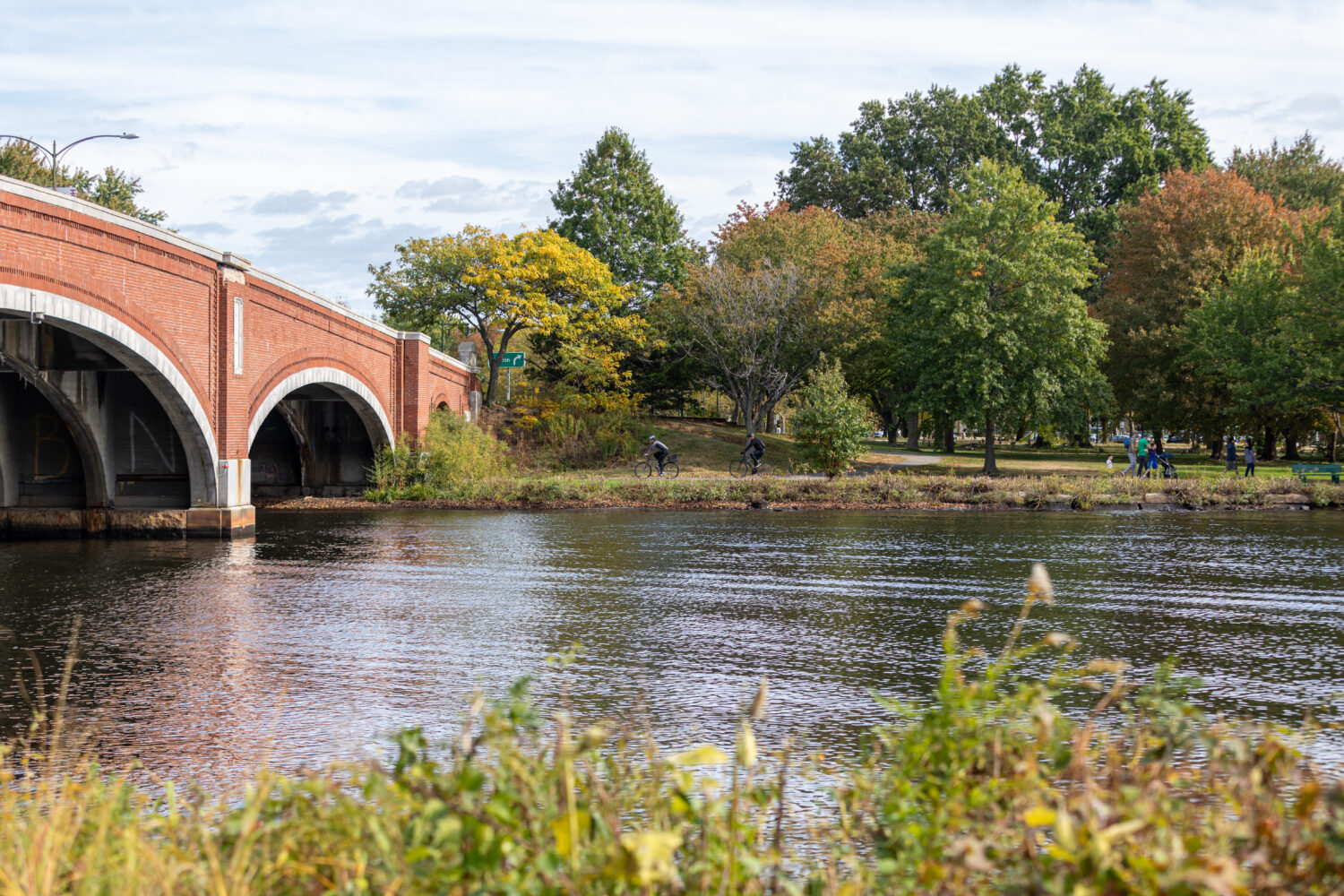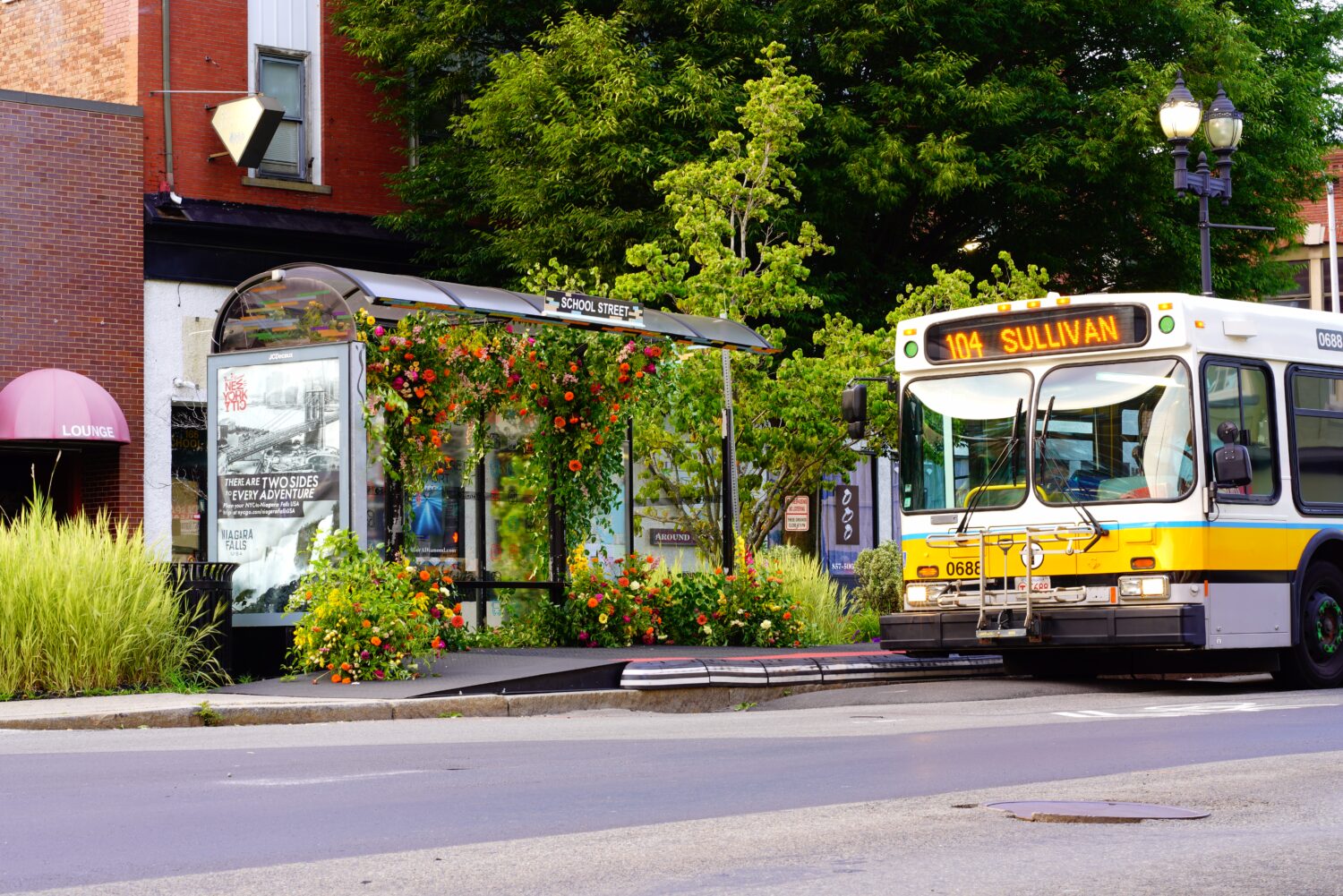- Since 2010, the Climate Program’s clean energy team has regularly commissioned research to better understand New England voters’ opinions on climate change and clean energy. After our 2022 poll, we were interested in better understanding perspectives about the region’s clean energy future – including the phasing out of gas and other fossil fuels.
- In the summer of 2023, we sponsored six focus groups with homeowners in each New England state and a final group with renters to gain further insights. We were particularly interested in discussing electrification, which has become a central part of climate strategies in the region.
- In alignment with the climate poll, respondents had an overwhelmingly positive perception of clean energy, but they also had questions about implementation, the costs of the energy transition, and how their own lives might change in the future.
As New England increases the momentum of its energy transition in response to worsening climate impacts, states are shifting out of planning towards implementation. To help surface key opportunities, challenges, and questions to support this momentum, the clean energy team sponsored new research to better understand how New England residents are thinking about and experiencing the energy transition in their daily lives.
In July and August, the clean energy team commissioned Hart Research to conduct a series of online focus groups with homeowners and renters in each of the New England states. We wanted to get a deeper understanding of experiences and opinions driving the polling data. Across each of the focus groups, we targeted a representative sample of residents at or below a moderate average median income (AMI) for their state. The responses were remarkably consistent across each of the New England states, homeowners and renters. There are a few key takeaways from these conversations that we wanted to share:
New England is excited about clean energy. In each state, focus group participants had positive views of clean energy and saw it as the technology of the future. Many respondents viewed the clean energy transition as inevitable. They encouraged incentives and policies at the state and federal level that further clean energy development. Respondents offeredhealth benefits, climate, a better environment and less dependence on fossil fuels as reasons for their enthusiasm about the energy transition.
People are still worried about grid reliability. Alongside discussing renewable energy supply, the focus groups also covered electrification, specifically the transition of heating and cooling from fossil fuels to clean electricity. A factor which gave participants pause was grid reliability. Participants were concerned about the ability of the electric system to handle the transition of the power supply and the addition of many heat pumps and electric vehicles. Stories of blackouts from Texas and California were top of mind for participants. They were unaware of federal and state efforts to support grid infrastructure upgrades and modifications and what improved grid infrastructure could look like.

Residents’ hesitation to adopt clean technologies is tied to costs, and most are unaware of incentives that are already available to them (or will be soon). During the session, we spoke with participants about how the energy transition might impact their day-to-day lives in their homes. Many respondents had positive views of weatherization and both homeowners and renters were aware of and had taken advantage of opportunities such as weatherization and/or free light bulbs. Participants were highly cost sensitive and were concerned about both the upfront cost of replacing equipment as well as the ongoing operating costs of new equipment. There was little to no awareness of federal or state incentives for major purchases, such as heat pumps, electric vehicles, or solar. In the coming months, energy efficiency program administrators will need to educate the public about the impact of both state and federal incentives on the cost of clean energy technologies. This education should also include information to help consumers understand operating costs.
People like heat pumps (once they know what they are). Beyond limited awareness of available incentives, most participants had not heard of heat pumps before the focus groups. After group facilitators described the technology, participants were genuinely interested. Respondents liked that heat pumps were renewable and able to offer both heating and cooling, especially with New England’s warming summers. When we asked participants whattheir biggest takeaway from the session was, one of the most frequent responses was interest in learning more about heat pumps. The Maine focus group stood out in that more Mainers were familiar with the technology. At present, Maine currently has the highest installed heat pump capacity in New England and it achieved its 2025 target of 100,000 heat pump installations two years early – in June 2023. The State’s successful outreach about heat pumps could partially explain the focus group result and could offer lessons learned for other states, cities, and towns wishing to encourage homeowners to take advantage of federal incentives.
Rooftop solar is considered a luxury. Participants were aware of rooftop solar and had significant interest in solar as a tool for energy savings. Throughout New England for more than a decade, rooftop solar has been encouraged through various rebates, low-interest loans, tax incentives, and other policies to reduce the upfront cost for consumers. These efforts likely help contribute to high consumer awareness of solar PV in the region. However, despite the existence of these programs, participants still viewed rooftop PV as a luxury good inaccessible to everyday people. Participants also complained that aggressive sales tactics and confusing offers left them feeling frustrated. If states intend to encourage further solar adoption in light of available federal incentives, consumer education and consumer protection must accompany these efforts.
Participants like the idea of clean heat standards+. While no respondent had heard of the term, “Clean Heat Standard,” after the facilitator explained that clean heat standards regulate companies to reduce natural gas use, the policy approach was viewed favorably across all focus groups. Participants also liked that the policy effectively uses incentives to help people of lower and middle incomes to transition to cleaner energy. The respondents had questions about compliance and accountability if this type of regulation was implemented. These questions are also still being debated in Massachusetts and Vermont, where there are currently open regulatory discussions about heating standards.
These focus groups provided a glimpse into how New England residents are thinking about the energy transition within their lives. As a member of the Massachusetts Grid Modernization Advisory Council, I know these findings will be helpful as we explore crucial questions about how to enhance flexibility, adaptability, and reliability of the grid to support the State’s ongoing electrification efforts. We hope that sharing these results also helps our partners identify areas where there may be gaps in current consumer outreach and education, particularly as federal incentives and grantmaking accelerate in the coming months.





